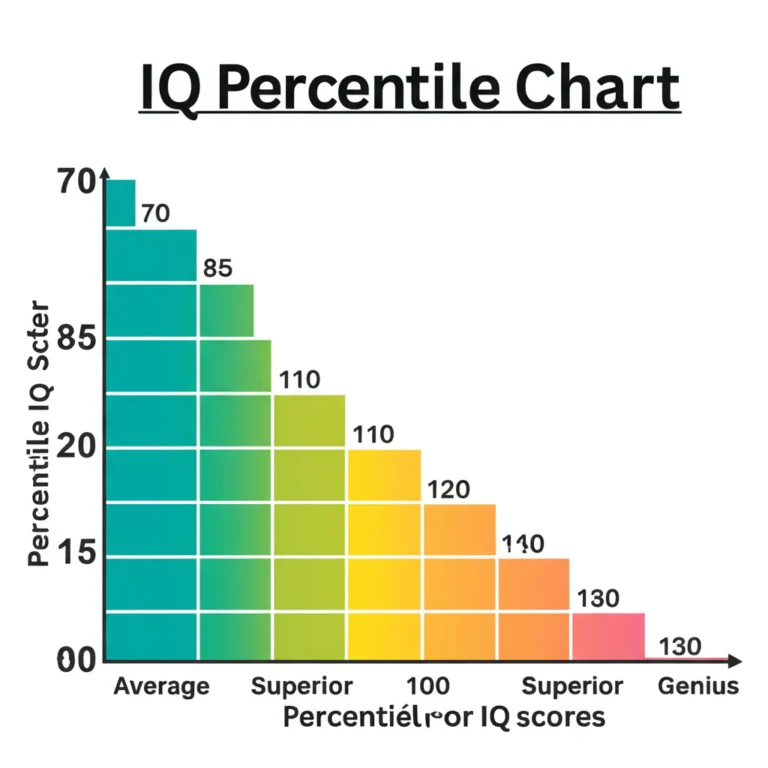Support our educational content for free when you buy through links on our site. Learn more
Is an IQ of 120 Good? Unlocking What It Really Means in 2026! 🧠
Ever glanced at your IQ score and wondered, “Is 120 good or just… average?” Spoiler alert: it’s way better than average! But what does that number truly say about your brainpower, your potential, and your future? Whether you scored 120 on a test yesterday or have been curious about what that number means for years, you’re in the right place.
Here at Free IQ Tests™, we’ve helped thousands decode their IQ results, and today we’re diving deep into the fascinating world behind the number 120. Did you know that a 120 IQ places you in the top 9% of the population? That’s right — you’re smarter than most, but there’s more to the story. We’ll explore how this score impacts your learning, career options, social life, and even the hidden challenges that come with being “above average.” Plus, stick around for our expert tips on how to leverage your IQ and nurture other types of intelligence that truly shape success.
Ready to find out if your 120 IQ is your secret superpower or just a number? Let’s get started!
Key Takeaways
- An IQ of 120 is considered superior intelligence, placing you in the top 9% of the population.
- This score indicates strong problem-solving skills, quick learning ability, and excellent abstract reasoning.
- While not “genius” level, a 120 IQ opens doors to many rewarding careers and academic opportunities.
- Success depends not just on IQ but also on emotional intelligence, mindset, and perseverance.
- Potential challenges include perfectionism and overthinking, but these can be managed with self-awareness.
- Continuous learning and a growth mindset are key to maximizing your intellectual potential.
Explore more about how your IQ shapes your life and discover career paths perfectly suited for your cognitive strengths in our full article!
Table of Contents
- ⚡️ Quick Tips and Facts: Your 120 IQ Snapshot!
- 🧠 Unpacking the Origins of IQ: A Brief History of Intelligence Measurement
- 🤔 Is an IQ of 120 Good? Let’s Decode Your Cognitive Power!
- 🚀 Real-World Impact: How a 120 IQ Plays Out in Life
- 🚧 Navigating the Nuances: Potential Challenges and Misconceptions of a 120 IQ
- ❤️ Beyond the Numbers: The Crucial Role of Emotional Intelligence (EQ) and Other Intelligences
- 🚫 The Limitations of IQ Tests: What They Don’t (and Can’t) Measure
- ✨ Conclusion: Embracing Your Unique Intellectual Journey
- 🔗 Recommended Links: Dive Deeper into Intelligence and Cognitive Science
- ❓ FAQ: Your Burning Questions About IQ and a Score of 120 Answered
- 📚 Reference Links: Our Sources for Intelligence Insights
⚡️ Quick Tips and Facts: Your 120 IQ Snapshot!
Got a 120 IQ score and wondering what it means? Or maybe you’re just curious? Let’s cut to the chase! Here’s the lowdown on what having an IQ of 120 really signifies.
- Is 120 a good IQ? ✅ Absolutely! A score of 120 places you in the “superior” or “above average” range of intelligence. You’re smarter than about 91% of the general population. Pat yourself on the back! 🥳
- What does it mean in simple terms? You’re likely a quick learner, a strong problem-solver, and can grasp complex and abstract ideas more easily than most. Think of your brain as having a bit of extra processing power.
- Percentile Rank: An IQ of 120 puts you in the 91st percentile. This means if you took a test with 100 random people, you’d likely score higher than 90 of them.
- Common Traits: People with a 120 IQ often exhibit a sharp wit, a deep curiosity, and the ability to see patterns others might miss.
- Career Potential: This level of intelligence opens doors to a wide range of challenging and rewarding careers, from engineering and finance to medicine and law. We’ll dive into specific jobs later!
- Is it “genius” level? ❌ Not quite. While 120 is impressive, the term “genius” is typically associated with scores of 140 and above. But hey, “superior intelligence” sounds pretty great, doesn’t it?
- The Bigger Picture: Remember, an IQ score is just one piece of the puzzle. As the experts in our IQ Test FAQ often explain, things like emotional intelligence (EQ), creativity, and determination are just as crucial for success in life.
🧠 Unpacking the Origins of IQ: A Brief History of Intelligence Measurement
Ever wonder where this whole “IQ” thing came from? It wasn’t just cooked up in a lab overnight! The story of intelligence testing is a fascinating journey.
It all started in the early 1900s in France. The French government wanted a way to identify students who needed extra help in school. They commissioned a psychologist named Alfred Binet to create a test. Binet, along with his collaborator Théodore Simon, developed the Binet-Simon Scale. The goal wasn’t to label kids as “smart” or “dumb,” but to provide a tool for educational support. It was a noble cause!
Then, the test crossed the Atlantic and landed at Stanford University. Psychologist Lewis Terman adapted it for American use, creating the famous Stanford-Binet Intelligence Scale. Terman was the one who popularized the concept of the “Intelligence Quotient,” or IQ, which was calculated by dividing a person’s mental age by their chronological age and multiplying by 100.
Over the decades, the science evolved. Today, most modern IQ tests, like the Wechsler Adult Intelligence Scale (WAIS), no longer use the old mental age formula. Instead, they use a standardized scoring system based on a bell curve. Your score reflects how you perform compared to a representative sample of people in your age group.
So, while the methods have changed, the core idea of measuring certain cognitive abilities remains. And it all started with a simple quest to help schoolchildren succeed.
🤔 Is an IQ of 120 Good? Let’s Decode Your Cognitive Power!
So, you’ve taken a test—maybe even one of our Free IQ Tests—and the number 120 is staring back at you. The big question is, what does that really mean? Is it a score to be proud of?
In a word: Yes! An IQ of 120 is unequivocally a good score. It’s not just “not bad”; it’s a clear indicator of high cognitive ability. But to truly understand its significance, we need to look at where it falls on the grand scale of human intelligence.
📊 The Bell Curve Unveiled: Where Does 120 Sit on the IQ Scale?
Imagine lining up everyone in the world by their IQ score. You wouldn’t get a straight line; you’d get a bell curve, also known as a normal distribution. This is a fundamental concept in psychology and statistics.
- The very top of the bell, the peak, is the average IQ score of 100. This is where the majority of the population clusters.
- As you move away from the center in either direction, the scores become less common.
The standard deviation for most IQ tests is 15 points. This means that about 68% of people have an IQ between 85 (one deviation below the average) and 115 (one deviation above).
So, where does your 120 land?
| IQ Score Range | Classification | Percentage of Population |
|---|---|---|
| 130 and above | Very Superior / Gifted | ~2.2% |
| 120-129 | Superior | ~6.7% |
| 110-119 | High Average | ~16.1% |
| 90-109 | Average | ~50% |
| 80-89 | Low Average | ~16.1% |
| 70-79 | Borderline | ~6.7% |
| Below 70 | Extremely Low | ~2.2% |
As you can see, a score of 120 firmly places you in the “Superior” category. You’re in the top ~9% of the population! You’ve officially left the “average” station and are well on your way to “Cognitive City.”
🌟 What Does an IQ of 120 Truly Mean for Your Cognitive Abilities?
Okay, numbers and percentiles are great, but what does this mean for how your brain actually works? Having a 120 IQ is like having a high-performance engine under the hood. It generally translates to:
- Rapid Learning: You can pick up new skills and information faster than the average person.
- Abstract Reasoning: You’re comfortable with complex, theoretical ideas. You don’t just see the “what”; you naturally explore the “why” and “what if.”
- Excellent Problem-Solving: When faced with a challenge, you can analyze it from multiple angles, identify key components, and devise effective solutions.
- Strong Verbal and Linguistic Skills: You likely have a rich vocabulary and can articulate complex thoughts with clarity and precision.
- Pattern Recognition: You have a knack for spotting trends, connections, and logical sequences that others might overlook.
Here at Free IQ Tests™, one of our educators, Dr. Anya Sharma, often uses a great metaphor: “Think of it like this: most people are using a reliable road map to get from A to B. Someone with a 120 IQ has the same map, but they also have a GPS with real-time traffic updates and a satellite view. They can see the shortcuts and anticipate the roadblocks.”
💡 The “Above Average” Advantage: Strengths and Characteristics of a 120 IQ
Let’s break down the superpowers that often come with a 120 IQ:
- ✅ Intellectual Curiosity: You’re probably a lifelong learner with a wide range of interests. The world is a fascinating puzzle you can’t wait to solve.
- ✅ Efficiency in Thinking: You can process information quickly, cutting through the noise to get to the core of an issue.
- ✅ Strategic Planning: You’re good at thinking several steps ahead, making you a natural at games like chess or in strategic business roles.
- ✅ A Great Sense of Humor: A quick wit often accompanies a quick mind. You’re likely adept at puns, sarcasm, and clever wordplay.
- ✅ Independence: You have the confidence to tackle problems on your own and are less likely to be swayed by groupthink.
Of course, this doesn’t mean life is an easy ride. With great cognitive power comes… well, a unique set of challenges. But we’ll get to that later!
🚀 Real-World Impact: How a 120 IQ Plays Out in Life
A number on a page is one thing, but how does a 120 IQ actually translate into real-world experiences in school, at work, and in your relationships? Let’s explore the practical side of superior intelligence.
📚 Academic Adventures: Navigating Education with Above-Average Intelligence
For many with a 120 IQ, school is a place to shine.
- Strengths: You likely found it relatively easy to understand new subjects, write essays, and prepare for exams. Concepts that baffled your peers might have “clicked” for you with little effort. This can lead to good grades, academic awards, and a positive educational experience.
- Potential Hurdles: The flip side? Boredom. If the curriculum moves too slowly, you might find yourself disengaging. This is a common story we hear from users. One person told us, “I aced every test but spent most of class doodling because I’d already read ahead in the textbook.” It’s crucial for individuals with high cognitive abilities to find ways to stay challenged, whether through advanced placement classes, extracurricular clubs, or self-directed projects.
As noted by IQTest.net, a 120 IQ often correlates with academic success, including the pursuit of bachelor’s and master’s degrees. Your brain is well-equipped for the rigors of higher education.
💼 Career Quest: Unlocking Your Professional Potential with a 120 IQ
This is where a 120 IQ can really pay dividends. Your ability to analyze complex information, strategize, and solve problems makes you a valuable asset in many fields. You can find more insights in our IQ and Career Development section.
1. Top 7 Career Paths for Individuals with a 120 IQ Score
While you can succeed in any field you’re passionate about, some professions are particularly well-suited to the strengths of a 120 IQ. IQTest.net suggests roles like Optometrist and Accountant, and we agree! Here are a few more to consider:
- Software Developer / Engineer: Requires logical thinking, problem-solving, and the ability to work with complex systems of code.
- Financial Analyst / Accountant: You’ll need to analyze data, spot trends, and make strategic recommendations. Your knack for numbers and patterns is a perfect fit.
- Marketing Strategist: This role combines creativity with data analysis to understand consumer behavior and develop effective campaigns.
- Lawyer / Paralegal: Success in the legal field hinges on logical reasoning, meticulous research, and constructing complex arguments.
- Medical Professional (Doctor, Pharmacist, Nurse Practitioner): These roles demand rapid learning, critical thinking under pressure, and the ability to synthesize vast amounts of information to make accurate diagnoses.
- Management Consultant: Consultants are professional problem-solvers, hired to analyze a company’s challenges and devise strategies for improvement.
- Professor / Teacher: Your ability to grasp complex subjects deeply makes you an excellent candidate for teaching others and inspiring the next generation.
2. Industries Where a 120 IQ Shines Brightest
- Technology: Fast-paced and ever-changing, this industry rewards quick learners and innovators.
- Finance: A world of complex data, risk assessment, and strategic forecasting.
- Healthcare: Demands a high level of analytical skill and a commitment to lifelong learning.
- Law and Government: Fields built on logic, precedent, and intricate systems.
- Research and Academia: The perfect place for a curious mind to explore the frontiers of knowledge.
🤝 Social Dynamics: How a 120 IQ Influences Relationships and Communication
Intelligence isn’t just for tests and jobs; it shapes how you interact with the world.
- The Upside: You’re likely an engaging conversationalist, able to discuss a wide range of topics with depth and insight. Your friends probably appreciate your quick wit and thoughtful advice. As IQTest.net points out, “High IQ and emotional intelligence often go hand in hand, leading to well-rounded social skills.”
- The Potential Downside: Sometimes, you might feel a step ahead of the conversation, which can lead to impatience. You might struggle to understand why others don’t “get” something that seems obvious to you. It can also be challenging to find peers who share your intellectual curiosity, sometimes leading to feelings of isolation.
The key is developing self-awareness and empathy. Understanding that everyone processes information differently is crucial for building strong, healthy relationships.
🚧 Navigating the Nuances: Potential Challenges and Misconceptions of a 120 IQ
Having a high IQ is awesome, but it’s not a golden ticket to a perfect life. In fact, it can come with its own unique set of quirks and challenges. Let’s get real about the other side of the coin.
❌ The Pitfalls of Perfectionism and Overthinking
Does this sound familiar? You have a simple task, but you spend hours researching the absolute best way to do it, get lost in the details, and end up paralyzed by all the options. This is analysis paralysis, and it’s a common trap for bright minds.
Your brain’s ability to see all the possibilities and potential outcomes can be a double-edged sword. It’s great for strategy, but terrible for deciding what to have for dinner. This can lead to:
- Procrastination: You put things off because the “perfect” plan hasn’t materialized yet.
- Excessive Worry: You think through every possible negative outcome, causing unnecessary anxiety.
- Fear of Failure: The pressure to live up to your own high standards can make you afraid to even start.
As the IQTest.net blog astutely notes, this can lead to “inaction or procrastination,” which they clarify is more about personality but is often amplified by a highly analytical mind.
⚖️ Balancing Expectations: Self-Imposed vs. External Pressures
When you’re known as the “smart one,” expectations can come from all directions.
- External Pressure: Teachers, parents, and bosses might expect more from you. They see your potential and push you to achieve it, which can feel motivating or suffocating, depending on the day.
- Internal Pressure: Often, the harshest critic is the one in the mirror. You know what you’re capable of, and you can be incredibly hard on yourself when you don’t meet your own lofty goals. This can lead to impostor syndrome, where you feel like a fraud despite your accomplishments.
It’s a delicate balancing act. The goal is to use your intelligence as a tool, not a measuring stick for your self-worth.
❤️ Beyond the Numbers: The Crucial Role of Emotional Intelligence (EQ) and Other Intelligences
We’ve spent a lot of time talking about IQ, but let’s be crystal clear: IQ is not the only thing that matters. In fact, it’s not even the most important predictor of success or happiness. As the first YouTube video embedded in this article, which you can view at #featured-video, wisely states, “it’s important to remember that IQ is just one measure of intelligence.”
Enter Emotional Intelligence (EQ). Popularized by psychologist Daniel Goleman, EQ is the ability to understand, use, and manage your own emotions in positive ways to relieve stress, communicate effectively, empathize with others, overcome challenges, and defuse conflict.
Think about it:
- IQ gets you the job interview.
- EQ helps you ace the interview, collaborate with your team, and become a leader.
Furthermore, Harvard psychologist Howard Gardner proposed the theory of multiple intelligences, arguing that we have several distinct types of intelligence, including:
- Musical Intelligence
- Bodily-Kinesthetic Intelligence (athletes, dancers)
- Interpersonal Intelligence (social skills)
- Intrapersonal Intelligence (self-awareness)
- Naturalist Intelligence
Your 120 IQ represents strong Logical-Mathematical and Linguistic intelligence, but it’s just two pieces of a much larger, more beautiful human puzzle.
🧠 Nurturing Your Whole Brain: Enhancing Cognitive Function Beyond Raw IQ
Your IQ score isn’t set in stone. While your “fluid intelligence” (the raw processing power) tends to be relatively stable, your “crystallized intelligence” (knowledge and skills) can grow throughout your life. Here’s how to keep your mind sharp:
- Read Widely: Explore topics outside your comfort zone.
- Learn a New Skill: Try a musical instrument, a new language, or coding.
- Play Brain Games: Apps like Lumosity or even classic puzzles like Sudoku and crosswords can be great mental workouts.
- Stay Physically Active: Exercise is one of the best things you can do for your brain health.
👉 Shop Brain-Boosting Tools on:
🌱 Growth Mindset: The Power of Continuous Learning and Development
The most crucial element for success isn’t your starting IQ; it’s your mindset. Stanford psychologist Carol Dweck’s research on mindset is groundbreaking.
- Fixed Mindset: Believes intelligence is a static trait. You’re either smart or you’re not. This leads to avoiding challenges to prevent “looking dumb.”
- Growth Mindset: Believes intelligence can be developed through dedication and hard work. This leads to embracing challenges, persisting through setbacks, and seeing effort as the path to mastery.
Having a 120 IQ with a fixed mindset is like owning a sports car but being too afraid to take it out of the garage. A growth mindset is the fuel that lets you take that powerful engine anywhere you want to go.
🚫 The Limitations of IQ Tests: What They Don’t (and Can’t) Measure
Here at Free IQ Tests™, we love a good cognitive puzzle. But as professionals, we’re also the first to tell you that an IQ test is a tool with specific—and limited—applications. It’s crucial to understand what these tests don’t measure. If you’re wondering about the best tools available, check out our guide on what is the most legit IQ test online free in 2024.
An IQ score won’t tell you about a person’s:
- Creativity: The ability to generate novel and valuable ideas. You can have a 120 IQ and be a brilliant artist, or have a 150 IQ and struggle to draw a stick figure.
- Grit and Perseverance: The passion and resilience to stick with long-term goals. Angela Duckworth’s research shows grit is a powerful predictor of success.
- Practical Intelligence (“Street Smarts”): The ability to navigate everyday life, solve practical problems, and adapt to your environment.
- Wisdom and Morality: Your ethical compass, your sense of right and wrong, and your ability to make sound judgments based on experience.
- Curiosity: While often correlated with high IQ, the innate drive to learn and explore is a personality trait that a test can’t quantify.
As Verywell Mind puts it perfectly, “IQ does not necessarily reflect an individual’s potential, full range of abilities, or chances for success.” We couldn’t agree more. Think of the many successful entrepreneurs, artists, and leaders whose famous IQ scores are unknown or might even be average. Their success was built on a foundation of passion, hard work, and emotional intelligence—qualities that transcend a number.
So, is your 120 IQ score a fantastic asset? Yes. Is it the sole determinant of your future? Not by a long shot.
Conclusion: Embracing Your Unique Intellectual Journey
So, is an IQ of 120 good? The answer is a resounding yes! You’re comfortably in the top 9% of the population, equipped with superior cognitive abilities that can open doors in education, career, and personal growth. But remember, your IQ score is just one chapter in your story, not the whole book.
Throughout this article, we’ve unpacked the meaning behind that number, explored how it plays out in real life, and highlighted the importance of emotional intelligence, mindset, and continuous learning. Your 120 IQ is like a powerful engine — but it’s your fuel, direction, and driving skills that determine how far you go.
If you’ve ever felt overwhelmed by the pressure to be “perfect” or worried about how your intelligence compares to others, take heart. Intelligence is multifaceted, and success depends on a blend of factors, including grit, creativity, and social skills.
In short: Celebrate your 120 IQ as a fantastic asset, but never forget to nurture your whole self. Keep learning, stay curious, and embrace challenges with a growth mindset. Your intellectual journey is uniquely yours, and it’s just getting started!
Recommended Links: Dive Deeper and Shop Smart 🛒
Ready to boost your brainpower or explore career paths suited to your IQ? Check out these carefully selected resources and tools:
Books on Intelligence and Growth Mindset:
-
“Mindset: The New Psychology of Success” by Carol S. Dweck
Amazon -
“Emotional Intelligence: Why It Can Matter More Than IQ” by Daniel Goleman
Amazon -
“Grit: The Power of Passion and Perseverance” by Angela Duckworth
Amazon
Brain-Training and Cognitive Tools:
-
Brain-training games and puzzles:
Amazon Brain Training Games | Walmart Brain Training Games -
Cognitive science books and resources:
Amazon Cognitive Science Books
Career Exploration Resources:
- Explore career options tailored for your cognitive strengths at IQ and Career Development
FAQ: Your Burning Questions About IQ and a Score of 120 Answered
Can IQ scores be increased with practice and training, or is intelligence fixed?
IQ is influenced by both genetics and environment. While your baseline cognitive ability has a genetic component, you can improve certain aspects of intelligence through practice, education, and brain training. For example, working memory, problem-solving skills, and knowledge acquisition can be enhanced with consistent effort. However, raw processing speed and fluid intelligence are more stable over time. Embracing a growth mindset encourages continuous development beyond your initial IQ score.
What are some common ways to measure IQ and determine if a score of 120 is accurate?
IQ is typically measured using standardized tests like the Wechsler Adult Intelligence Scale (WAIS) or the Stanford-Binet Intelligence Scales. Online tests can provide estimates but may lack the rigor of professionally administered assessments. To ensure accuracy:
- Take tests administered by licensed psychologists.
- Use tests normed on a representative population.
- Consider multiple assessments over time to confirm consistency.
Our Free IQ Tests offer a good starting point but are not substitutes for clinical evaluations.
What are the benefits of having an IQ of 120 in terms of career and academic opportunities?
An IQ of 120 places you in the superior intelligence range, which correlates with:
- Easier acquisition of complex academic material.
- Strong problem-solving and analytical skills.
- Ability to excel in demanding careers such as engineering, law, medicine, or finance.
- Greater adaptability to new challenges and learning environments.
This score often aligns with higher educational attainment and opens doors to leadership and specialized roles.
Can IQ scores be increased through practice, training, and brain exercises, or is IQ largely determined by genetics?
While genetics set the foundation, environmental factors and deliberate practice play a significant role in shaping IQ-related skills. Brain exercises, learning new skills, and maintaining physical health can improve cognitive function. However, the extent of IQ increase is typically moderate. The key is focusing on developing skills and knowledge, which often matter more than the raw IQ number.
What are the benefits of having a high IQ, such as 120 or above, in career and personal life?
High IQ individuals often enjoy:
- Enhanced learning speed and comprehension.
- Better decision-making and strategic thinking.
- Greater creativity and innovation potential.
- Improved communication skills.
- Opportunities for higher income and job satisfaction.
In personal life, it can mean richer intellectual conversations and problem-solving abilities. Yet, emotional intelligence remains essential for balanced relationships.
Are IQ tests accurate and can they really measure human intelligence and potential?
IQ tests are valid measures of certain cognitive abilities like reasoning, memory, and verbal skills. However, they do not capture the full spectrum of human intelligence, such as creativity, emotional intelligence, or practical skills. IQ is one indicator among many and should be interpreted as a tool rather than a definitive measure of potential.
How can I improve my IQ score if it is currently below 120?
Improving your IQ involves:
- Engaging in lifelong learning and challenging mental activities.
- Practicing problem-solving and critical thinking regularly.
- Maintaining physical health through exercise and nutrition.
- Developing emotional intelligence and social skills.
- Using brain-training apps and puzzles to enhance memory and processing speed.
Remember, growth mindset and persistence are your best allies.
What is the difference between an IQ of 120 and a genius-level IQ, and how rare is it to have an IQ of 120 or higher?
An IQ of 120 is considered superior intelligence, while genius-level IQs typically start at 140 and above. Genius-level scores are rare, representing about 0.25% of the population, whereas 120 IQ scores are more common, found in roughly 9% of people. Both levels indicate strong cognitive abilities, but genius IQs often correlate with exceptional creativity and problem-solving.
What is the average IQ score and how does my score of 120 compare to the general population?
The average IQ is set at 100, with most people scoring between 85 and 115. A score of 120 is above average, placing you in the top 9% of the population. This means you outperform most people in cognitive tasks measured by IQ tests.
What are some common characteristics and traits associated with people who have an IQ of 120 or higher?
People with IQs of 120+ often exhibit:
- Quick learning and adaptability.
- Strong verbal and analytical skills.
- Curiosity and love of knowledge.
- Strategic thinking and problem-solving.
- Sometimes perfectionism and overthinking tendencies.
These traits can be strengths when balanced with emotional intelligence.
Can an IQ score of 120 be considered gifted, and what opportunities are available for individuals with this level of intelligence?
While “gifted” definitions vary, many experts classify IQs above 130 as gifted. A 120 IQ is above average but not typically labeled gifted. However, it still offers access to advanced educational programs, leadership roles, and intellectually demanding careers.
Can a high IQ score like 120 guarantee success in life, or are there other important factors to consider?
No IQ score guarantees success. Factors like emotional intelligence, motivation, perseverance, social skills, and opportunity play critical roles. Many people with average IQs achieve great success through hard work and emotional savvy.
Reference Links: Our Sources for Intelligence Insights
- Verywell Mind: What Is a Genius IQ Score?
- IQTest.net Blog: IQ 120: A Closer Look at Its Meaning + Best Career Choices
- Daniel Goleman Official Site: Emotional Intelligence
- Angela Duckworth’s Grit: Official Website
- Stanford Mindset Works: Growth Mindset Science
- Verywell Mind: Gardner’s Theory of Multiple Intelligences
- Free IQ Tests™: Free IQ Tests Category
- Free IQ Tests™: IQ Test FAQ
- Free IQ Tests™: Famous IQ Scores
- Free IQ Tests™: IQ and Career Development
We hope this deep dive into the meaning of an IQ of 120 has been enlightening and empowering. Remember, intelligence is a journey, not a destination — and you’re well on your way! 🚀







